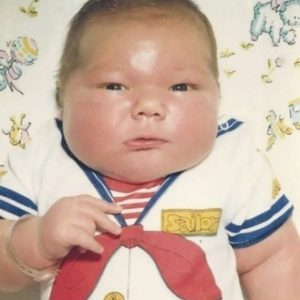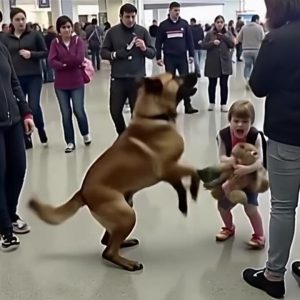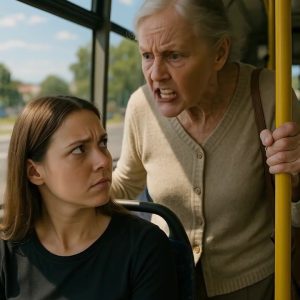Julia’s Perfect Image Gets a Jolt from a Harley
Julia had always aspired to be the Perfect Neighbor—the kind of woman who inspires others just by example. She took pride in her carefully curated life, hoping to be a role model for the women in her community. But that picture-perfect image was about to take a hit.
Just imagine the look on her face when her mother pulled into the driveway—riding a Harley-Davidson.
Julia felt a surge of secondhand embarrassment so intense, she nearly told her mother to leave. But deep down, she knew the real reason she couldn’t.
That morning, bathed in golden sunlight, Julia knelt in her garden, her gloved hands gently pressing the soil around her blooming roses. The floral scent mingled with the cool air, creating a fleeting moment of peace—her small sanctuary from the emotional chaos brewing inside.
Then came the voice she had been dreading.
“Good morning, Julia!” called out Nancy, her chipper tone stretched thin over a layer of judgment. “Already in the garden? So impressive.”
Julia looked up, forcing a tight smile.
Nancy stood at the edge of her yard, wearing a flawless floral dress, every hair in place—like someone straight out of a lifestyle magazine.
“Good morning to you too, Nancy,” Julia replied, keeping her tone even while her jaw tightened.
“I try to stay on top of everything. I know it doesn’t always look quite as polished as yours,” she added, attempting modesty.
Nancy’s smile sharpened. “Oh, don’t be too hard on yourself. Everyone has their own… style. Yours is just a little more… personal.”
Julia clenched her trowel. Nancy had a way of dressing up insults as compliments, turning every conversation into a silent competition. Julia hated the game, but she hated losing more.
Nancy tilted her head slightly, her eyes scanning Julia’s face. “You seem a little… off today. Everything okay?”
Julia sighed. Dodging Nancy’s probing was pointless. “Not me—my mom. She just got divorced. It’s been a rough time for her, and she’s moving in with me for a while. She needs me.”
Nancy’s smile faltered for a beat before snapping back into place—this time even more artificial. “How sweet of you. She’s lucky to have such a devoted daughter.”
Then, the low rumble of an engine cut through the quiet neighborhood.
Both women turned toward the sound.
“What on earth…” Nancy muttered, clearly annoyed.
The rumbling grew louder until a sleek Harley-Davidson rolled into Julia’s driveway and came to a stop.
The rider, clad in a black leather jacket, pulled off their helmet.
It was Rachel—Julia’s mother. Beaming.
“Hey there, Julia!” she called. “What do you think of my new ride? Isn’t it incredible?”
Julia stood frozen, mouth slightly open, struggling to process the scene in front of her. Her mother looked like she belonged in a motorcycle ad, not a retirement brochure.
“Mom…” she managed to say, her voice caught somewhere between disbelief and embarrassment.
“I’ll park it in the garage,” Rachel said casually. “Then we can have some tea and catch up.”
Julia turned toward Nancy and whispered, “Can you just… not?”
Nancy, wide-eyed and practically giddy from the drama, remained speechless—for once.
Inside, the smell of fresh tea filled the kitchen, but it did little to calm Julia’s nerves. She stood with arms crossed, watching her mother peel off her leather jacket with a huge grin on her face.
“What was that?” Julia asked, sharper than intended.
Rachel laughed lightly. “What do you mean? That was me living my dream! I’ve wanted a motorcycle my whole life. I finally did it!”
Julia stared at her in disbelief. “Mom, you’re sixty! What do you even need a motorcycle for? And how did you pay for it?”
Rachel waved her off as she sank into a chair. “I dipped into my retirement savings.”
“You what!?” Julia practically shouted. “You’ve been saving that money to relax and enjoy life—not risk it on a Harley!”
Rachel leaned back in her chair, a calm but determined smile on her face. “Now this is what I call a peaceful retirement,” she said. “Riding down the open road, wind in my hair—it’s the most free and at peace I’ve felt in years.”
Julia threw up her hands in exasperation. “I seriously can’t believe this. Do you have any idea how this makes me look? What are the neighbors going to say? What’s going to happen to my reputation?”
At that, Rachel’s smile faded. She stood, her expression still and firm. She looked Julia straight in the eyes. “Your reputation?” she asked quietly. “Julia, do you know what I’ve spent my entire life doing? Following the rules. Keeping everything neat and proper. Making sure everyone else was happy. But that’s not really me. I’ve been living for others for decades. It’s time I start living for myself. Can’t you see that?”
Julia froze. Her mother had never spoken like this before—with conviction, with clarity. Guilt pressed against her, but frustration still tugged at her. “This isn’t about me, Mom,” she said, trying to steady her voice. “We’re taking that bike back. Let’s go.”
Rachel let out a slow sigh, reaching for her keys. “Okay, Julia,” she said gently. “If that’s what you think is best.”
But Julia could feel it—that tone wasn’t surrender. It was quiet defiance. A subtle dare wrapped in calm compliance.
The tow truck’s engine rumbled up the street, cutting through the silence like a blade. Julia stood with her arms folded, posture stiff. “Just handle it carefully,” she told the driver, her words clipped and sharp.
Behind the curtains, Julia could see the neighbors peeking out, whispering. Watching.
Their judgment wrapped around her like a weight. She tried to push it away, but their stares gnawed at her nerves and churned her stomach.
Rachel stood quietly off to the side, hands tucked into her jacket. She watched as the Harley was loaded onto the truck. She didn’t protest. She didn’t plead. But Julia caught the flicker of disappointment in her eyes.
As the tow truck pulled away, Julia turned on her heel and headed for the car. Rachel followed without a word. The drive to the dealership was tense and silent, filled only with the hum of the engine and the soft click of the turn signal.
Outside the dealership, Julia slumped back in her seat and sighed, the sound full of frustration. “Mom, I just don’t get it. You spent all that money… for what? A thrill? To show off?”
Rachel turned to look at her, steady and calm. “For happiness,” she said simply.
Julia frowned. “What does that even mean?”
Rachel took a breath, folding her hands in her lap. “After I divorced your father, I realized something,” she said quietly. “I’ve lived my whole life following a script—raising kids, keeping the house together, being polite, being predictable.”
She glanced out the windshield, her voice growing softer. “And I always put what others thought above what I felt. But now? I’m single. I’m sixty. I don’t have forever, Julia. I’ve got right now. And I just want to spend it being happy. For me.”
Julia swallowed hard. Her mother’s words had cut through her pride like a blade, exposing a truth she didn’t want to face. She sat in silence, a weight pressing down on her chest. Was she really more worried about the neighbors than her own mother’s happiness?
“I’m sorry, Mom,” she said softly, her voice heavy with regret.
The tow truck pulled into the dealership lot, tires crunching over the gravel.
Julia stepped out quickly, her pace brisk and determined. As the driver moved toward the back of the truck, she raised a hand. “Wait!” she called out. “Don’t unload it here.”
The man paused, blinking in confusion.
“Just drop it right here in the lot,” she continued, her voice steady but urgent. “I’ve changed my mind.”
The driver—burly and covered in grease—gave a shrug. “Fine by me,” he said. “Long as I get paid.”
Julia nodded and pulled out her wallet.
Once the bike was back on solid ground, she looked at it for the first time without judgment. Its chrome gleamed in the sun. The handlebars, the leather seat—everything about it now felt like more than just a machine. It was a symbol.
Her eyes drifted to the car, where Rachel sat still, her hands clasped nervously in her lap. Julia walked over, heart thudding in her chest.
“Mom,” she said gently, “I was wrong. I let my pride get in the way. I let other people’s opinions cloud what really matters. That bike… it’s incredible. And now, I get it.”
Rachel’s expression shifted—first surprise, then soft wonder. “You mean it?”
Julia nodded. “Yeah. Actually, I was hoping… maybe you could give me a ride home?”
Rachel’s face lit up like a sunrise. “Absolutely!” she grinned, hopping out of the car and striding toward the bike like she’d been waiting her whole life for this moment.
Minutes later, Julia found herself on the back of the motorcycle, her arms wrapped around her mother’s waist. Rachel revved the engine, its deep growl echoing down the street.
As they pulled away, Julia noticed the usual crowd—neighbors peeking from windows, whispering from porches. Normally, their stares would have made her feel small. But today?
Today, she didn’t care.
The wind whipped past her face, and the tension that had sat in her chest for so long began to melt away. All she could see now was her mother’s joy—the sparkle in her eyes, the smile that made her look ten years younger.
In that moment, Julia finally understood: happiness doesn’t come from fitting in. It comes from letting go and choosing joy—no matter what anyone else thinks.
The Change
Over the next few weeks, Julia began embracing a new sense of freedom she never knew she needed. The Harley became a symbol—not just of Rachel’s independence, but of Julia’s willingness to let go of perfection.
Every weekend, the two of them rode out to nearby towns, laughing, exploring, and rediscovering the simple thrill of being alive.
The shift in Julia was subtle, but undeniable. She wasn’t just managing her life anymore—she was living it. Her garden flourished, her laughter came easier, and the once-icy tension with Nancy began to thaw.
But not everyone approved.
One morning, as Julia parked the Harley by her flower beds, Nancy sauntered over, her face tight with judgment.
“Seriously, Julia?” she sneered. “A Harley? At your age? What’s next—skydiving lessons?”
Julia smiled, unbothered. “Maybe,” she said, calmly removing her helmet. “I’m just enjoying life, Nancy. You should try it sometime.”
Nancy scoffed and turned on her heel. “This won’t last. You’ll be back to your old self soon enough.”
Julia chuckled. “Maybe,” she said with a wink. “Or maybe I’ll keep doing things my way.”
Soon, even the neighborhood began to notice. Her roses bloomed brighter. Her joy became contagious. And the bond between mother and daughter deepened into something unshakable—rooted in love, respect, and a newfound sense of freedom.
And if anyone had doubts, they only had to see Julia hop on the back of that Harley to know:
She wasn’t looking back.
A Shocking Discovery
One chilly evening, after a long ride through the countryside, Julia and Rachel pulled into the driveway. As they took off their helmets, they spotted a familiar silhouette near the fence that separated their yard from the neighbor’s.
It was Nancy.
She stood still, arms crossed but her face softer than usual—less sharp, more contemplative.
“Julia,” she called out, her voice hesitant, almost unsure. “Could we talk for a minute?”
Julia exchanged a curious glance with Rachel before walking over. “Sure, Nancy. Everything okay?”
Nancy took a breath, steadying herself. Her eyes met Julia’s with a vulnerability Julia hadn’t seen in a long time. “I’ve been doing some thinking… about what you said before. About living life on your own terms.”
Julia’s expression softened. “It took me a long time to figure that out for myself.”
Nancy looked down, fidgeting with her sleeves. “I’ve been so caught up in appearances, in being what people expect… I think I forgot how to be happy. Watching you and your mom—just seeing you both go after joy so unapologetically—it made me realize how far I’ve drifted from mine.”
Rachel stepped closer and rested a gentle hand on Julia’s shoulder. “It’s never too late to start over, Nancy. Everyone deserves that chance.”
Nancy looked up, her eyes glassy but hopeful. “I want to try. Not just for me… but for my family too. I want to show them something different.”
Julia smiled warmly. “That’s a brave first step, Nancy. And you won’t be doing it alone. We’re here if you need us.”
From that evening forward, something quietly shifted between them. A cautious friendship began to grow. Julia and Nancy started talking more—sometimes about the past, often about where they were going next. What had once been tension became understanding, and over time, a genuine connection bloomed.
A Christmas Full of Warmth
Three months later, Christmas brought a sense of anticipation Julia hadn’t felt in years. Her home glowed with twinkling lights, garlands hugged the stair rails, and winter flowers in the garden peeked out from the freshly fallen snow.
On Christmas Eve, she hosted the neighborhood’s annual gathering—something she once dreaded, but now looked forward to with a full heart. Ever since Rachel moved in, the tradition had taken on new meaning.
The house buzzed with warmth—guests laughed and swapped stories, the scent of fresh lasagna filled the air, and holiday music played softly in the background.
Julia stood near the kitchen island, slicing into a spiced cake, her heart full. So much had changed. Her relationship with her mom was stronger than ever, and her former rivalry with Nancy had become something surprisingly meaningful.
Just as she was about to serve dessert, the doorbell rang.
She glanced at the clock—8:00 PM. A bit early for latecomers, but she didn’t think much of it. Wiping her hands, she moved to the door and opened it.
Standing there, framed by the soft glow of porch lights, was Sophia.
Sophia—elegant, confident, and glowing in a way that radiated transformation. She held a beautifully wrapped gray case in her hands and smiled with sincere warmth.
“Sophia!” Julia exclaimed. “What a surprise. Come in!”
“I had to stop by,” Sophia said. “I couldn’t let Christmas pass without thanking you.”
As she stepped inside, heads turned. Sophia’s presence was magnetic, and Rachel, just returning from a short spin on the Harley, rolled into the driveway behind her—turning more heads. But Julia didn’t shrink back. Not anymore.
Once inside and settled among the guests, Sophia stood and cleared her throat.
“I want to share something,” she said. “A few years ago, I was in a very different place. And on a day I really needed it, Julia showed me kindness—not grand, not loud, but honest. That small act helped me start again. And because of that, I’ve rebuilt my life. I found strength I didn’t know I had.”
The room fell quiet, the kind of quiet that comes when people truly listen.
“Even the smallest kindness,” Sophia continued, “can ripple out and change a life. Julia, you gave me that. I’ll always be grateful.”
Tears stung Julia’s eyes as she nodded, overwhelmed. “Thank you for saying that, Sophia. It means more than you know.”
The rest of the night sparkled with warmth and connection. Conversations flowed freely, laughter rang louder, and for Julia, something felt profoundly right.
It wasn’t about the perfect tree or the neatly wrapped gifts. The magic of Christmas was back—but not in tradition or expectation.
It was in people. In stories shared. In new friendships. In unexpected visitors. In the courage to change.
And as Julia looked around the room at her mother, her neighbors, and her friends, she realized that joy, once elusive, was finally hers to keep.
A Fresh Start
As the evening came to a gentle close, Julia stood by the window, watching delicate snowflakes dance in the glow of the moonlight. The soft hush of the winter night felt like a balm. Rachel joined her, leaning casually against the frame, the warmth between them stronger than ever.
“You did good, Julia,” Rachel said, her voice quiet and full of pride. “You found your joy—and in doing that, you helped others find theirs too.”
Julia smiled, her heart swelling with a calm she hadn’t known in years. “I couldn’t have done it without you, Mom. Thanks for showing up when it mattered.”
Rachel’s eyes sparkled with the reflection of twinkling lights from the front yard. “We’re in this together. Always have been, always will be.”
In that moment, Julia finally understood what being the “perfect neighbor” truly meant. It wasn’t about immaculate lawns, perfect parties, or keeping up appearances. It was about honesty. About compassion. About showing up for others—even when life got messy.
As the last guests trickled out and the house settled into a peaceful silence, Julia felt a profound sense of accomplishment. She had faced embarrassment, navigated rivalry, and grieved personal losses. But through it all, she had grown into someone rooted in love, acceptance, and a quiet kind of strength.
She glanced over at the gray ornament Sophia had given her. It wasn’t just a token of thanks—it was a symbol. A reminder that lives are interconnected, that kindness leaves ripples, and that the smallest gestures can spark lasting change.
Julia gently placed the ornament on the Christmas tree, nestled between handmade keepsakes and family mementos. It caught the light, shimmering softly—a quiet tribute to the journey that had brought her here.
As she looked around her cozy, lived-in home, Julia knew with certainty: perfection had nothing to do with impressing others. It lived in truth, in love freely given, and in the courage to live authentically. That was the real magic of Christmas—the kind that lingered long after the snow melted and the decorations were packed away.
Epilogue
Years later, Julia remained a beloved figure in her neighborhood—a quiet force of stability, compassion, and good humor. Her garden, once a private refuge, now bloomed with the same generosity she shared with her community. It overflowed with color, each flower a reflection of the life she had cultivated.
Her bond with her mother deepened, their weekends often spent riding side-by-side on their Harleys, wind in their hair and laughter echoing down the tree-lined streets. Neighbors grew used to the sound of engines followed by bursts of joy from the mother-daughter duo.
Nancy had changed, too. What began as rivalry slowly transformed into one of the most supportive friendships in Julia’s life. They cheered each other on, celebrated each other’s victories, and even co-hosted neighborhood events. Nancy often credited Julia with helping her rediscover who she really was.
Sophia’s story became one that Julia told often. A testament to the power of one kind gesture, shared in quiet conversations with newcomers, in moments when someone needed to believe that change was still possible. Her experience served as a beacon, reminding others that sometimes, all it takes is one open heart to spark a transformation.
Each Christmas, as Julia brought out the decorations, she no longer felt the weight of needing to impress anyone. The ornaments were not symbols of status, but of stories—of resilience, compassion, and unexpected joy. The gray ornament Sophia had given her always took center stage, a reminder of what truly mattered.
Julia’s dream of being the “ideal neighbor” had come true—but not in the way she once imagined. It wasn’t about control or comparison. It was about showing up, being real, and embracing life’s unpredictable beauty. Her journey inspired others to do the same, slowly creating a neighborhood built on authenticity, empathy, and mutual respect.
And as snow gently dusted her garden each winter, Julia would stand by her window once again—grateful, grounded, and full of the quiet magic that comes from living a life true to the heart.
A Path to Joy
Rachel’s smile faded, replaced by a quiet intensity. She stood taller, her gaze steady as Julia questioned her about reputation, expectations, and the need to live for herself. Julia hesitated, torn between her frustrations and the growing realization that her mother’s words—though inconvenient—were pushing her toward a truth she could no longer ignore.
Outside, the low rumble of a tow truck broke the stillness. Julia leaned against the edge of the driveway, arms crossed, her voice clipped with irritation. Through the window, neighbors peered out from behind curtains, their faces a mix of curiosity and restrained gossip. Julia could feel the weight of their judgment pressing on her—but something inside her shifted. Amid the discomfort, a flicker of curiosity ignited deep within her.
Rachel stood quietly nearby, hands tucked into the pockets of her jacket as she watched the motorcycle being hoisted onto the truck bed. Julia, unable to contain herself, abruptly spun around and jumped into her car. Rachel followed silently, understanding that something was changing.
The drive to the dealership was wordless, the air thick with tension. Only the soft purr of the engine and the rhythmic click of the turn signal broke the silence. Julia sensed disappointment in her mother’s silence—but she also recognized something else: this wasn’t about Rachel anymore. This was about herself. About reclaiming something she had been too afraid to admit she wanted.
At the dealership, Julia asked the driver to unload the motorcycle. He refused, insisting that payment still needed to be settled. When Julia caught sight of the bike again—shiny, bold, unmissable—her heart raced. Without a word, she decided then and there: she was taking it home.
Rachel’s face lit up with joy, like a child on Christmas morning. She gently approached her daughter. “It’s more than a bike to me,” she said softly. “It’s a little reminder that I still get to decide who I am.”
Julia paused, then looked at the bike. “Want to see what it feels like?” she asked.
Rachel nodded, and with barely-contained excitement, they mounted the Harley. Julia climbed on behind her, arms wrapped securely around her mother’s waist. As the bike roared to life and cruised down the street, Julia caught glimpses of shocked neighbors watching from their windows. But for once, she didn’t care.
The wind tugged at her hair. Her mother’s laughter rang out like music. And all Julia could feel was freedom.
For the first time, she understood—happiness wasn’t found in others’ approval. It existed in moments like this, in letting go of fear and expectations. In choosing to live.
From that ride forward, Julia started letting go of perfectionism. She made peace with the unexpected, began embracing her days with a new sense of openness. The Harley became a symbol of that shift—a quiet rebellion wrapped in chrome and noise.
Of course, not everyone welcomed the change. Nancy, always the skeptic and occasional rival, was quick to voice her disapproval.
One day, as Julia passed Nancy’s yard, she offered a wry smile and said, “Maybe you should try skydiving. Shake things up a little.”
Nancy let out an exasperated sigh and turned away. Julia just kept smiling.
But change has a funny way of catching up.
Later that season, Julia and Rachel spotted Nancy in the park—hesitant, uncertain, yet clearly trying. Nancy struck up a conversation, and Julia, without judgment, opened up. She spoke honestly about what it meant to finally live for herself. Something in Nancy shifted. Her tone softened. The guarded edge fell away.
Rachel rested a hand gently on Julia’s shoulder and offered a quiet nudge. “Your happiness matters too. Don’t forget that.”
From there, a tentative friendship began to grow. Julia and Nancy started spending time together—not as rivals, but as women finding their way. They traded stories, offered encouragement, and found common ground in the messiness of self-discovery.
By the time Christmas rolled around three months later, Julia’s home glowed with light and warmth. The annual holiday gathering was livelier than ever—filled with neighbors, laughter, and an unmistakable sense of connection. Julia moved through the house with a quiet joy, grateful for how far she had come.
Among the guests was Sophia—a woman Julia had once helped in a moment of need. Now radiant and full of confidence, Sophia shared how one small act of kindness had sparked a transformation in her life. Julia was moved to tears. What she had once dismissed as a simple favor had left a lasting impact.
The night unfolded in glowing conversation and heartfelt exchange. As the final guests left and the house fell into a peaceful hush, Julia stood by the tree, holding the gray ornament Sophia had brought. It wasn’t just a thank-you—it was a testament. A symbol of the invisible threads that connect our lives.
She placed it gently on the tree.
It caught the light.
And Julia smiled.
Epilogue
Years later, Julia remained a cherished cornerstone of her community, her garden blooming as a reflection of her care, resilience, and deep affection for those around her. Her bond with her mother continued to flourish, rooted in shared laughter, bold rides, and a mutual understanding forged through honesty and growth.
Nancy, once a source of rivalry, had blossomed into a symbol of transformation and the healing power of forgiveness. What began as friction gave way to friendship, and her journey stood as proof that change is possible at any stage in life.
Sophia’s story remained etched in Julia’s heart—a gentle reminder that even the smallest act of kindness can ripple outward and transform lives in profound ways. Julia often shared her experiences with friends and newcomers in the neighborhood, encouraging them to offer a helping hand and remain open to the unexpected joys life can bring.
Each Christmas, Julia felt a renewed sense of purpose. The twinkling lights and ornaments around her home were no longer just seasonal decorations—they had become symbols of her personal journey. A journey shaped by self-discovery, quiet courage, and a deep conviction that true happiness is possible—even when the path begins with discomfort, embarrassment, or doubt.
Through her story, Julia inspired others to look beyond appearances and embrace their own authentic paths. In doing so, she helped create a community built not on perfection, but on kindness, connection, and mutual respect—a place where everyone could find joy in being exactly who they were meant to be.





